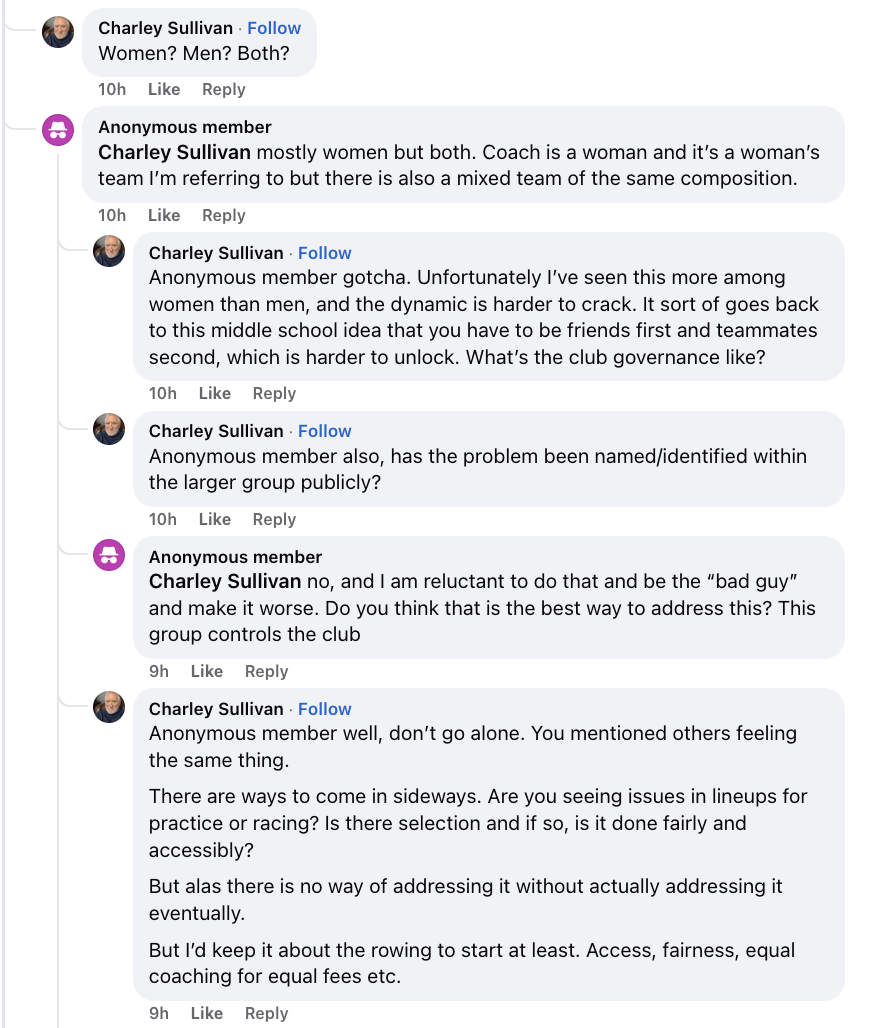You've likely seen it happen - a female rower acquires status and authority within your group and you notice things have changed. Their will determines what the group does, they select lineups they want to row with, they always seem to get the coaching and the "best" equipment.
Somehow if you don't ingratiate yourself, you get left out and feel increasingly frustrated.
Queen bee syndrome is a social phenomenon where women in positions of authority or power treat subordinate females worse than males, purely based on gender. It was first defined by three researchers: Graham Staines, Carol Tavris, and Toby E. Jayaratne in 1973.
Rowing clubs are not immune
Frequently there are more women than men in a masters rowing group and so you may find that this situation arises in your club. It's a difficult situation to handle because the person's authority and standing enables their behaviour and makes it hard to challenge them without finding yourself on the 'outside' of the favoured group.
Any sort of clique behaviour is death to a masters rowing group. It's a slow death yet a certain one.
What happens is that the in group run themselves, they ignore the leadership and the accepted group behaviours that everyone else has to follow. In the medium term, natural wastage means the group size reduces (people stop rowing, move away) and the queen is left with fewer and fewer people in her inner circle. You'd think this would reduce her power - but it doesn't. The favouritism is doubled down and she likely invites a couple of newbies into the group to make up the seats for folks who have left.
If you are invited in, it's appealing - you get to row in the best gear with the favoured athletes.

Club leadership's point of view
Rowing with your friends is fun and should not be discouraged. But the attitudes and mores which build up a community rowing club are based on inclusion.
As a leadership group you want to enable people to improve, to move through the training groups from beginner to racing (and to loop in and out of them if your life circumstances change). You want enthusiastic participants in club social activities, in camps, regattas and volunteers to help with fund raising and running your local regatta.
Members need to know the names of other members, the more experienced should be offering their skills to the less experienced at least a couple of times a month in mixed ability crew lineups. And a clear pathway of progression from one training group into other training groups needs to be visible to all. People must know what they "need to do" and what skills they need to have in order to put themselves forward for each group.
Any activity or favouritism that undermines these principles will cause resentment. Few members will challenge publicly, most vote with their feet and leave the club - and you'll never know why.
A solution
Having a couple of workouts each month when club members are obliged to row in mixed ability crews is one good method of breaking down these silos. The less experienced learn from the more experienced athletes, plus they get to know each other while in the boat together.
When you notice that the Queen Bee is not showing up for these practices - and she likely won't show - leadership can make it clear that participation is part of your volunteering requirement for club membership. Giving your time to help the less experienced is on a par with helping at the regatta or boat maintenance. If you don't check this box, then privileges get withdrawn - like being able to request to row with your friends, request the best boats, get entered in the races you want.
You may need to re-write your club membership documentation to enshrine the principle of volunteering and community engagement so that any behaviour which doesn't align can be easily spotted and disciplined.
Further resources
Webinar: Masters v Juniors covers ways to manage training groups, equipment allocation and membership dues to balance the club
Webinar: Club Management discusses how to avoid cliques, digital tools for club administration and fund raising using social media.
More examples
In the Masters Rowing International Facebook group we got another discussion on this topic. This message string shows some of the dialogue and solutions.


